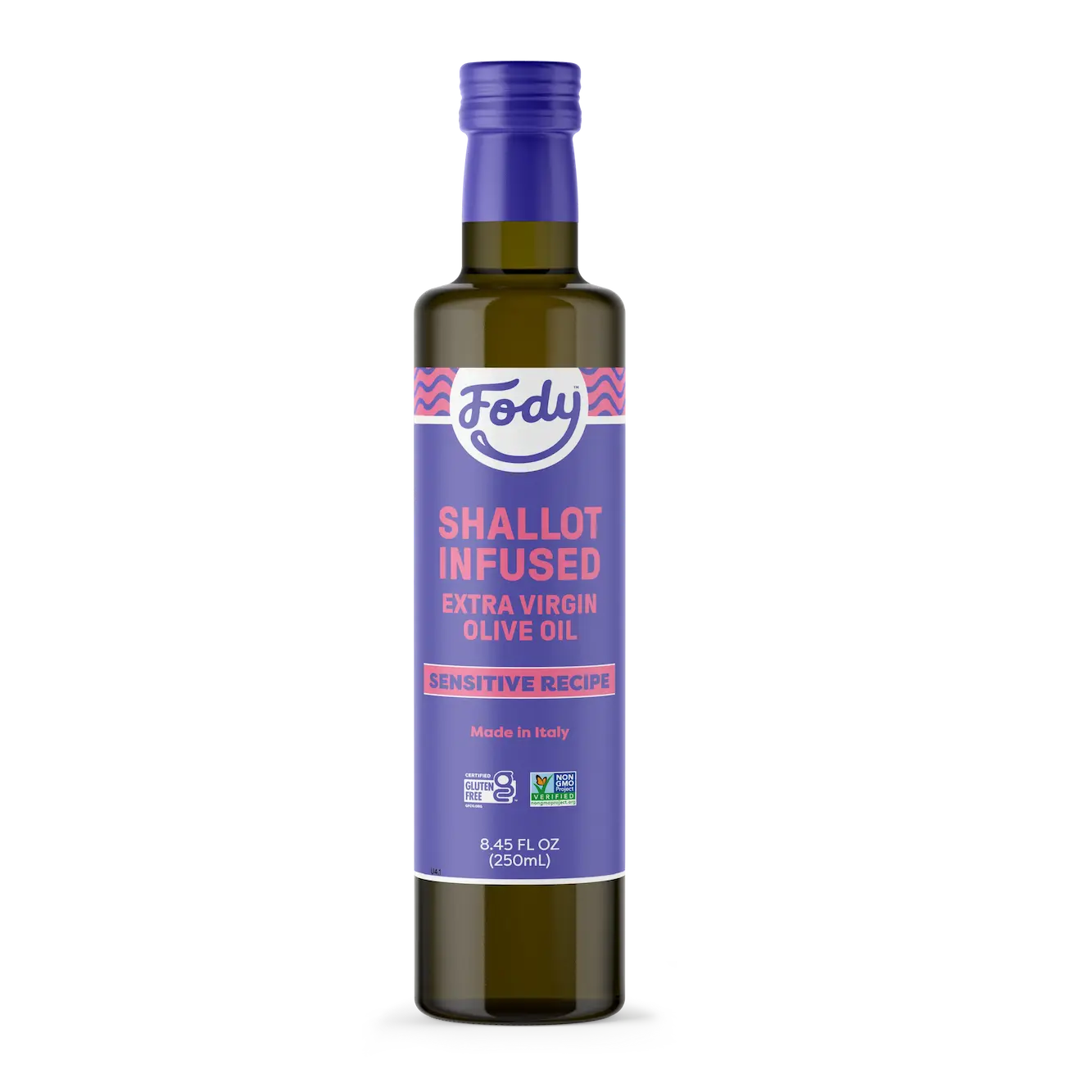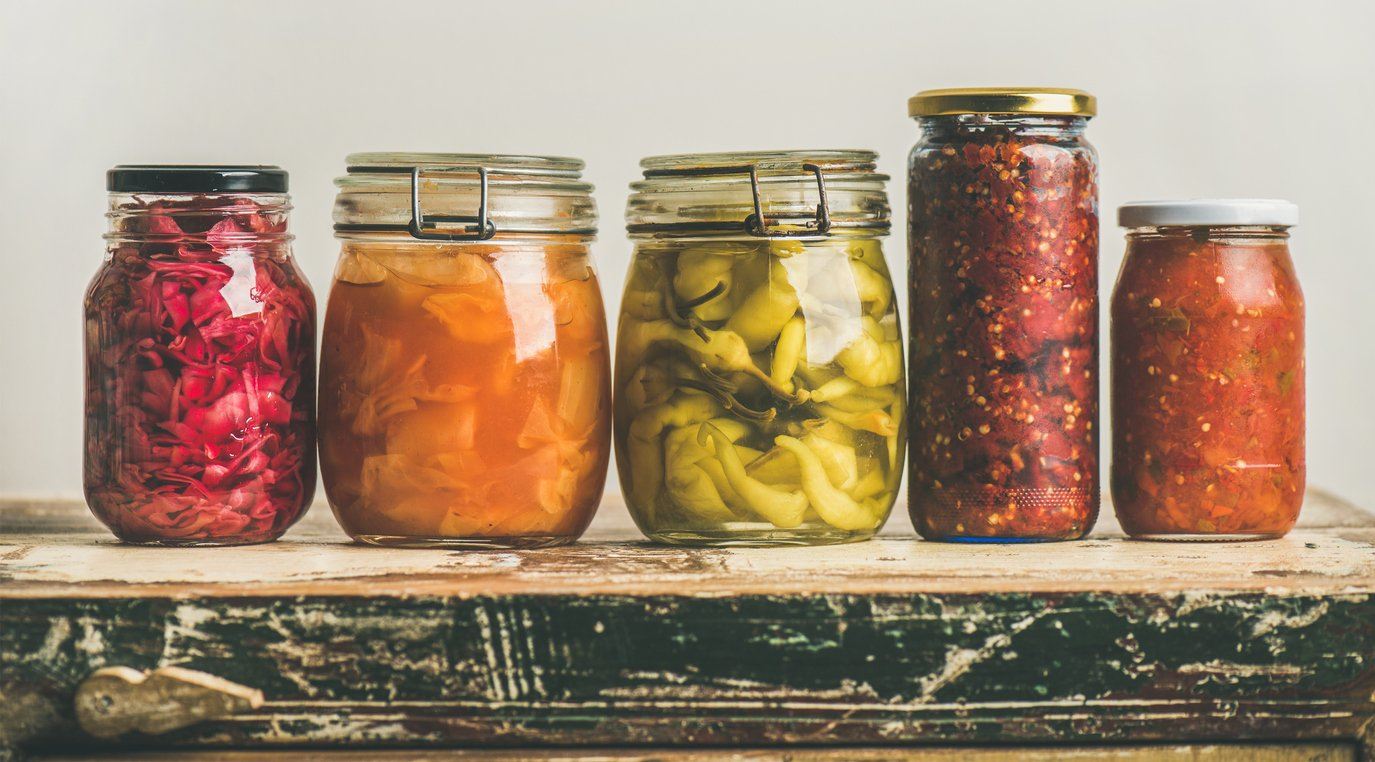

Are Fermented Foods Good for Gut Health?
Kimchi, kombucha, sauerkraut, yogurt...and who could forget the sourdough bread craze of early 2020? Fermented foods are everywhere, but they’re hardly a new trend.
Fermentation has been a part of human gastronomy for millennia, and the past years have seen a huge renewal of interest in it as a way to improve gut health. But just how effective are these foods in helping those with sensitive stomachs, and what, if any, are the health benefits of fermented foods? Today, we’re diving into fermented foods for gut health: are they worth the fuss?
What are Fermented Foods?
There’s a surprising reason that fermented foods are lauded for improving gut health: they are actually pre-digested! We know...yuck. But trust us, it’s not as gross as it sounds.
When a food is fermented, this usually means it is kept unrefrigerated in an anaerobic (airless) environment, where different classes of bacteria slowly break down (eat!) its sugars and carbohydrates. This results in changes to both the taste and the lifespan of the food.
In some cases, the microorganisms that ferment food are naturally occurring--literally. They consist of yeast cultures that already live on the food itself, and on our hands, and even in the air. In other cases, such as kombucha and kefir, they need to be added from pre-existing, carefully maintained bacterial cultures. The longer food ferments, the more the microorganisms will chow down and change the flavour; and that’s fermentation in a nutshell! If you want to know more about the nitty-gritty science of fermentation, check out this article to learn exactly what’s going on as foods are being broken down.
So What Are the Health Benefits of Fermented Foods?
Since they’re pre-digested by a host of friendly microorganisms, many of these foods become easier for our digestive tracts to process once they’re fermented. A common example is soybeans. These are difficult for our bodies to process in their raw state, but fermentation allows us to absorb more nutrients when we eat them in forms such as tofu or tempeh.
The other health benefit of fermented foods is the healthy bacteria that they are believed to contribute to our gut microbiome. That’s right: the same army of microorganisms that breaks down food as it ferments accompanies it into our bodies. Our digestive tracts contain trillions of organisms which help us digest food, and which may also help to strengthen our immune systems and possibly even regulate our moods. Probiotic fermented foods add to and strengthen our gut microbiome, which could result in a healthy gut and in some cases, improved digestion.
Fermented Foods and FODMAPS
So this means a spoonful of sauerkraut will solve all your digestion problems, right? Not quite. While fermented foods have some definite health upsides, not all ferments are good for everyone. It gets tricky when we factor in specific diets like the low-FODMAP diet. While the gut-friendly quality of fermented foods feels like it should be FODMAP-friendly, ferments actually fall all over the FODMAP...well, map.
Sauerkraut, kimchi, miso, sour pickles, kefir, kombucha, natto (a type of fermented soybean), sourdough bread and cheese are just a few examples of common ferments. The changes undergone during fermentation can have surprising effects on the level of FODMAPs in a particular food. For example, the wheat in sourdough bread goes from high-FODMAP to low-FODMAP when dough is fermented with a starter, as does goat’s cheese when it is made into yogurt and as do soybeans when they’re made into tempeh. Others, such as cow’s milk in yogurt and kefir, stay the same, while others (sauerkraut is the most well-known of the culprits) actually become high-FODMAP through fermentation.
FODMAP content is one of the trickiest aspects of fermentation to navigate. You can find out more in this useful article by Monash University, which includes a chart of the FODMAP ratings of several of the most popular fermented foods. For those with IBS or who eat a low-FODMAP diet, don’t despair! Enjoying fermented food depends largely on which type you choose to consume, and in what quantity.
A Last Word on Improving Gut Health and Digestion
The key point to remember about fermented food is this: read between the lines! As much as it can be tempting to want a one-time fix for long-term gut health, it’s definitely not a matter of eating all kimchi, all the time. At Fody, we believe that gut health and improving digestion is a matter of eating a gut-friendly diet.
It can also mean eating a low-FODMAP diet, or simply substituting foods that make you feel bloated or uncomfortable with foods that make you feel full, happy and comfortable. If you’re curious about a new type of food, fermented or not, always remember to check that it fits into your lifestyle and your eating needs and preferences.
Want to continue exploring delicious, bloat-free ways to boost your gut health and improve your digestion? Check out our recipes for inspiration, or shop Fody’s wide range of gut-friendly foods and condiments!
So, what are you waiting for?
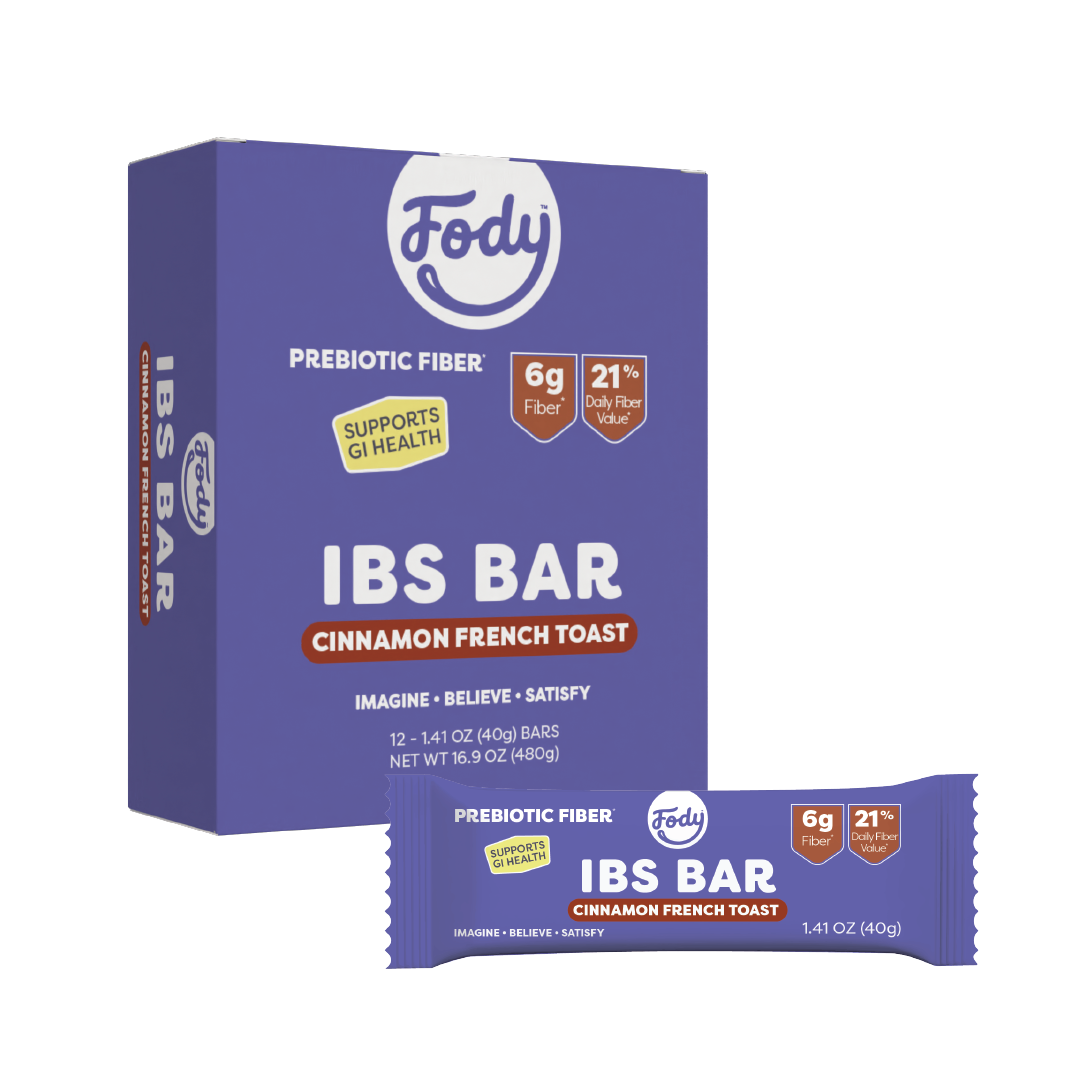
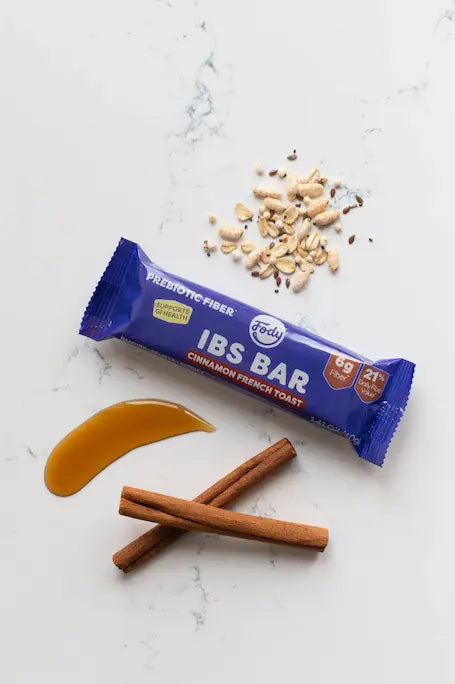 Cinnamon French Toast High Fiber Snack Bar - 12 Pack
Cinnamon French Toast High Fiber Snack Bar - 12 PackCinnamon French Toast High Fiber Snack Bar - 12 Pack
$32.99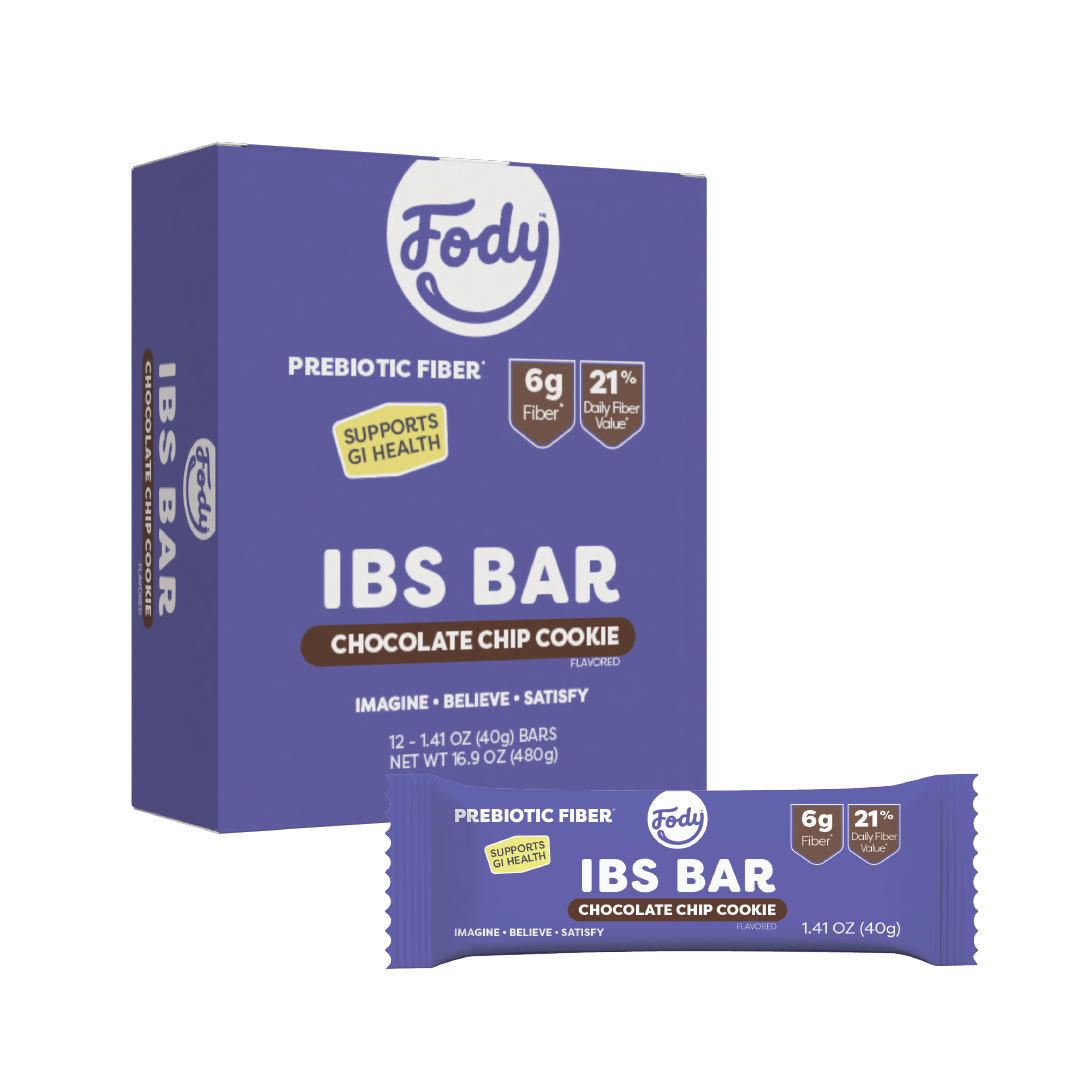
 Chocolate Chip Cookie High Fiber Snack Bar - 12 Pack
Chocolate Chip Cookie High Fiber Snack Bar - 12 PackChocolate Chip Cookie High Fiber Snack Bar - 12 Pack
$32.99











